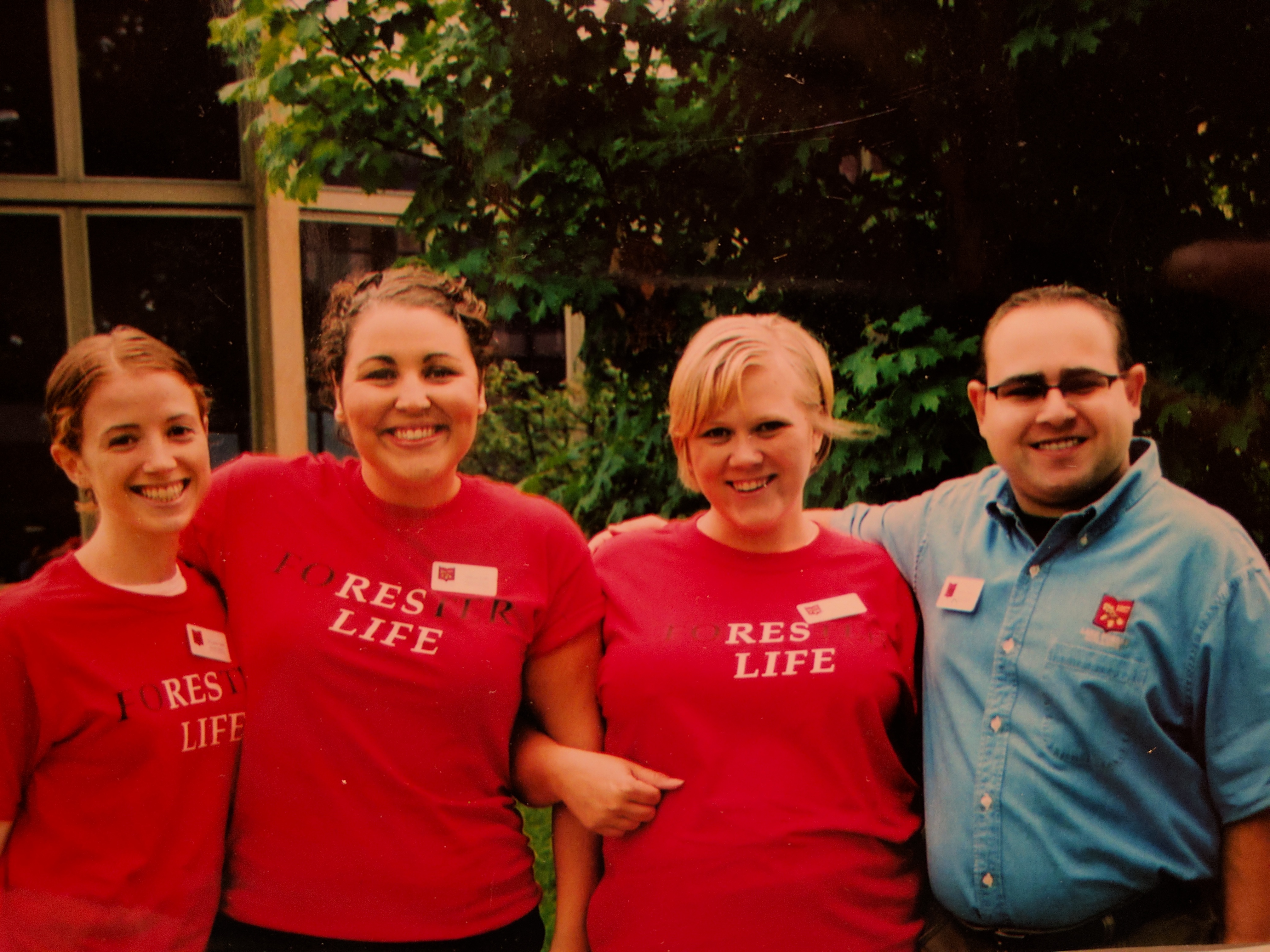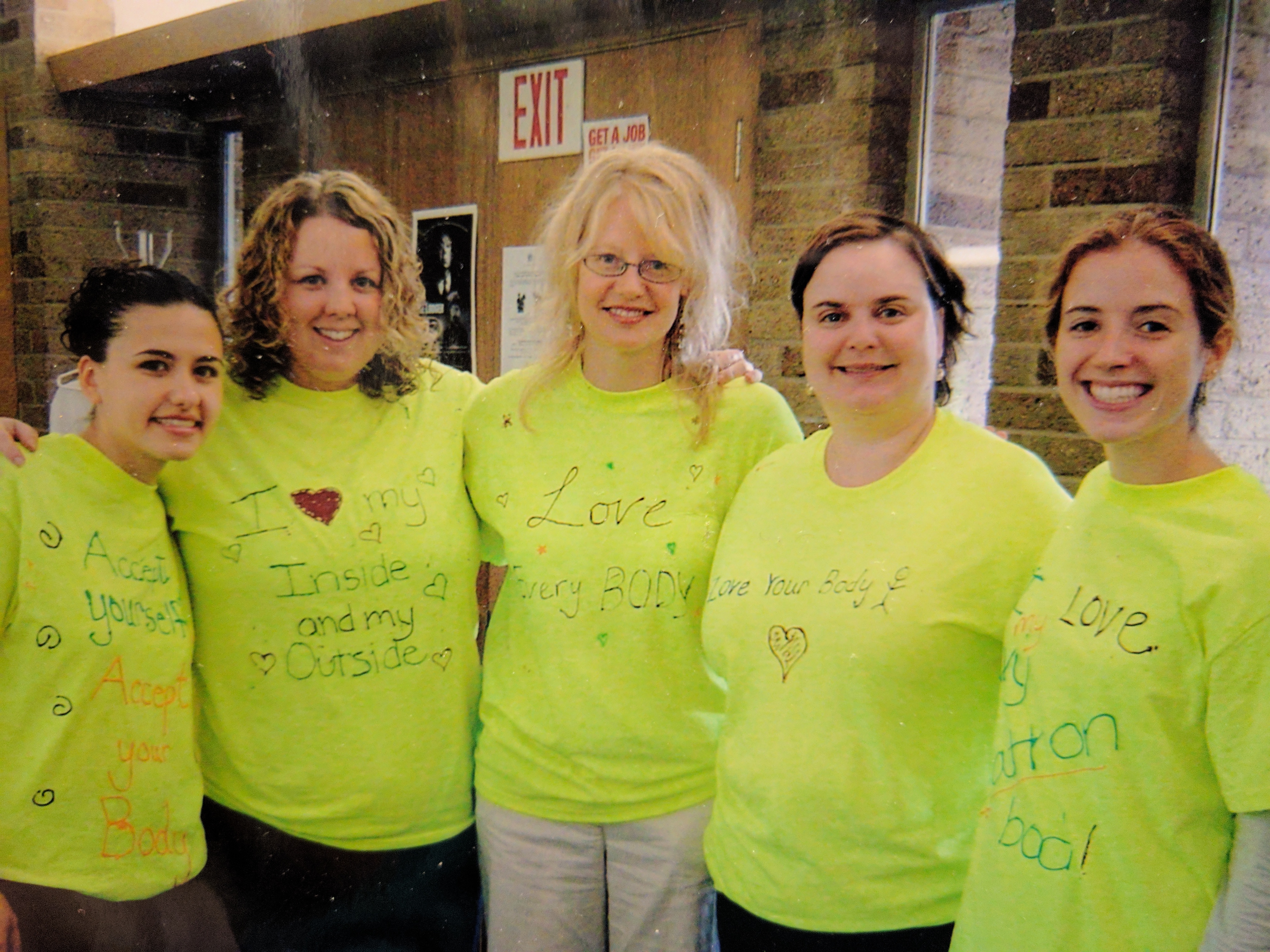Start at yes
In my first job out of undergrad, I was working as a full-time staff member at a small liberal arts college. To put it simply, I basically spent my days (and many, many nights) working with college students and helped them navigate college life. It was a fantastic first job — really hard at times, but also really rewarding — and I got super lucky because I worked with some fantastic human beings, college students and professionals alike.


Arguably one of those very influential and fantastic human beings with whom I had the pleasure of working was my dean of students. In the small college world, or at least at this particular small college, the dean of students was the “big boss” to everyone in student affairs, so while I didn’t report directly to her, my bosses did, and she relied on us minions to find out what was going on in the trenches. The college students clearly respected her not only because she was all business but also because she made it clear, through her actions and her words, that whatever decision she made was for the good of the college and thus, the students. Students routinely attended her open office hours each week, and they always did, evidenced by the queue that always flowed out of her office. Students knew that they could talk to her and, maybe more importantly, that she would listen.
Even though I’ve been many years removed from working at this particular college, I’ve been thinking about my former dean pretty frequently lately. I remember a very long staff meeting — in student affairs, we liked to “process” everything, so big staff meetings often took veritable eons — and when one of my colleagues talked about some ridiculous request or inquiry a student had thrown out, my dean quickly reminded us that it behooves us — when engaging with our students, when we are listening to their grandiose and likely improbable ideas, when we are in the throes of a disciplinary meeting with them for some drug or alcohol infraction, or shoot, even when we’re trying to navigate an unreal roommate conflict that has escalated to us (and/or has gotten parents involved — yup, that happens in college) — to start at yes.
Starting at yes, my dean explained, in effect allowed us to convey to our students that we were actually listening to them, that their thoughts and opinions were worthwhile, and that we weren’t just another naysayer in the students’ lives, shooting them down and telling them that whatever they had to offer wasn’t good enough. It wasn’t so much a matter of coddling the students or being yet another helicopter authority figure in the students’ lives. Instead, I interpreted “starting at yes” as being equal parts “be a good human” (i.e. it’s kinda a dick move to not even give another human the time of day for a few minutes, when that person has obviously mustered up the wherewithal to tell you something that he/she feels is of value) and “grant this person the permission to try” (i.e. if every other person has naysayed this student, you being the one who will actually listen can make a difference in the student’s life).
I’ve been thinking about my dean and her idea of “starting at yes” of late because the more I think about it, the more seemingly ensconced the idea is in running. There is no shortage of running-related “inspiration” and “motivation” percolating in the interwebs, but while the “rah rah you can do it believe and achieve!!” stuff may be helpful, at times, I think many of us are more likely to struggle with the idea that we should — that we ought to — grant ourselves permission to try, and possibly fail.
The hell am I talking about?
In running, many of us, myself included, often associate some degree of success in a race or in a training plan to a number we may or may not hit; this, of course, can include stats like how many miles per week/month/cycle/year we run, the times we post in a targeted race (and whether those are PRs and/or how well or maligned they compare to existing PRs), or even the paces that we target (and how well or how poorly we hit them) in our toughest workouts. Naturally, we can always say that we can measure our running “success” by other, perhaps less-easily-quantifiable measures, but for a lot of runners, at least in some point in their running career, the time on the clock supersedes just about everything else.
However, many of us will often see a tough workout staring us down in the morning — or think about a target race, where we’re going to try to hold a seemingly impossible pace for a seemingly impossibly long period of time — and we fall into this miasma of despair and self doubt. Suddenly, it doesn’t matter that we’ve been training well, that we’ve been feeling stronger than ever, or that we know we’re fit. Instead, we convince ourselves that oh shit there’s no way that I can hold X pace for Y amount of time, and we mentally shut our shit down before we even take our first step.
Disclaimer: I’m no coach or psychologist, but I can’t possibly imagine that going into a key something or other — workout, race, pick your poison here — feeling already mentally defeated will, in any way, do anything positive for our running performance.
I’ve been there before and fairly recently, in fact. A vivid memory that stands out was from my Oakland ‘14 training. I completely bailed on a tempo run (for those playing along at home, it was the classic Pfitz 12 with 7 at 15kRP or HMRP tempo) before I even began it because I had all but lost my mind over holding tempo pace — then, 7:1x, maybe 7:2x — for 7 miles out of a 12 mile run. I didn’t even begin the workout, never even took a step, literally (and I do mean literally) never got past my front door before I had already beaten myself, mentally, to a pulp. I ended up not running that day and was pissed about it — my window of opportunity that day gone because I had squandered it on self-doubt. Granted, I’m not saying that had I had a more sunny disposition about this workout that it would have gone over swimmingly. What sucks is that I willingly undermined myself and convinced myself that there was no way that I could hit those paces or anything remotely close to them, so trying would just be entirely futile. I didn’t give myself the permission to try or to fail. Start at yes? Eff that – I started at absolutely not a chance in hell.
I think my dean’s idea of starting at yes is resonating more with me now, than ever before, because I’m beginning to feel like my running is turning a corner. The nebulous “things” have been feeling very comfortable and smooth, and I’ve been producing in training and in races control, confidence, and speed that would have been ridiculously implausible to me not that long ago. Don’t get me wrong, Hoka or the Olympics aren’t beating down my door, but what I’ve been producing for me is fairly surprising (and also really exciting, I won’t lie!). It’s weird, really, because I feel like I’ve gotten less obsequious with my watch — as most of us would probably stand to benefit from doing — and this new-found emancipation is serving me quite well. When I’m staring down a hard workout or a race, where I want to perform at my very best, I’m no longer going into it thinking efffffffffffff this is gonna be impossible, questioning my life choices, and instead, I have grown more receptive to simply showing up, granting myself permission to try my hardest that I can in that moment (and possibly even failing, and unabashedly so), and just rolling with it. I’m seeing that just starting at yes — not hemming and hawing about it, thinking BS along the lines of oh, well, maybe, we’ll see, this will probably be really tough and I’ll probably keel and this is probably the worst idea ever — is probably one of the better things I’ve done for my running in a very long time.
Simply stated: in running — as in basically every other area of life — you don’t know what you can or can’t do unless you (give yourself the permission to) try.
